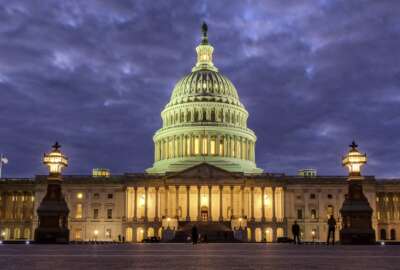Agencies losing faith in prices on GSA schedules?
A growing number of agencies no longer believe prices under the General Services Administration schedules program are "fair and reasonable." This story is part of...
A growing number of agencies no longer believe prices under the General Services Administration schedules program are “fair and reasonable.”
Along with the Defense Department, NASA quietly issued a memo in March that requires its contracting officers to do additional research to ensure GSA schedule prices are the best value for the government. Industry sources say other agency memos could follow from the likes of the departments of Health and Human Services, Homeland Security and Energy.
And nearly five months after the Defense Department’s Dick Ginman, director for procurement and acquisition policy (DPAP), created quite a stir by changing almost two decades of precedent around GSA schedule prices, Tom Sharpe, the commissioner of the Federal Acquisition Service, finally responded publicly to these major changes.
“I support what Dick Ginman has done in terms of telling his contracting workforce to go ahead and apply techniques to get the best price, value and other things important to the taxpayers when they raise orders or otherwise contract — that means getting competition and that means negotiating prices,” Sharpe said in an interview with Federal News Radio. “I think where Dick was at, and I agree with him, is we didn’t know how often contracting officers were receiving discounts. If you have any type of large volume at the order level, you should in fact be competing orders and negotiating discounts. The schedules were set up to enable that.”
Sharpe said by standardizing part numbers and descriptions on the schedules, GSA will use the data to make decisions about how much price variability in the schedules make sense, and agencies can use the data to make better buying decisions. He said GSA also plans to propose a rule to require schedule contractors to provide prices paid data and all demographics around it.
Sharpe said FAS will put that data in a tool so buyers can use it to help them shape how they should price that order.
“I support the agencies getting the best prices they can,” he said. “I’m in the process at FAS of setting the conditions, particularly on the multiple award schedule, such that possibly those deviations would no longer be needed, and I’ll defer to those customers.”
Despite Sharpe’s support of DoD, and presumably NASA too, industry experts aren’t happy with this growing trend. Several sources say DoD, and now NASA, aren’t solving a problem with the schedules, but rather not addressing a problem with the training of contracting officers.
Bill McNally, NASA’s assistant administrator for procurement, said like DoD, he believes contract prices under the individual schedule contract aren’t necessarily “fair and reasonable” to the agency at the task or delivery order level.
“This is an example of different agencies who talk to each other and both believe that what they will do is the best thing for their agency,” McNally said in an interview with Federal News Radio. “It’s a shared practice, what DoD and NASA are doing. It’s based on my conversations with my staff and I have had with Dick and his staff, which I think we should be doing more and more in the federal government.”
He added he believes NASA contracting officers were ensuring they were getting the best prices when using GSA schedules, but the memo just codified the requirement.
“You should be going out and looking at multiple sources. You should be making sure there is adequate price competition when you sign a task order and that you got a fair and reasonable price,” McNally said. “You have to make sure they do all analysis that’s within FAR part 15 when price cost analysis, that is done to determine that task order or delivery order.”
NASA spends about $100 million a year through the GSA schedules.
Some sources say now that DoD and NASA have issued deviations — two of the three Federal Acquisition Regulations Council signatories — it’s only a matter of time until the FAR Council gets involved. GSA is the third signatory.
McNally said as a signatory of the FAR Council, he and others look out for what’s in the best interest of the government, not of NASA.
McNally said the idea of GSA schedule prices being fair and reasonable has come up at the Chief Acquisition Officer’s Council meetings.
At the same time, if two of the largest agencies believe the schedules are no longer “fair and reasonable,” and if other big spending agencies join them, don’t be surprised if a major FAR change isn’t far behind.
Copyright © 2024 Federal News Network. All rights reserved. This website is not intended for users located within the European Economic Area.
Jason Miller is executive editor of Federal News Network and directs news coverage on the people, policy and programs of the federal government.
Follow @jmillerWFED






